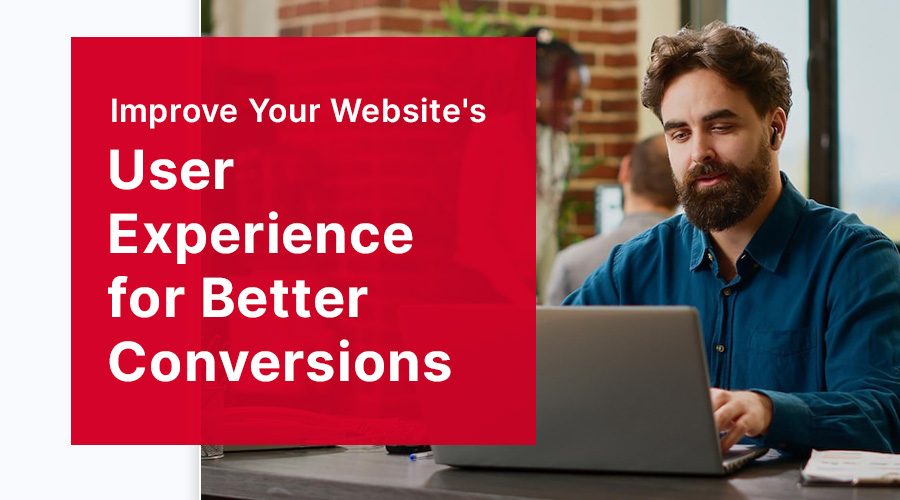Introduction
Hey there, fellow web enthusiasts! Do you sometimes wonder why your website isn’t performing as well as you’d like? Are you struggling to get those conversion rates up? Well, it’s time to take a step back and evaluate your website’s user experience (UX). A website with a great UX can make all the difference in the world when it comes to attracting and retaining users. In this blog post, we’re going to explore the essential tips and tricks for improving your website’s user experience and, ultimately, boosting those conversion rates. Let’s dive right in!
Table of Contents
- Simplify Your Navigation
- Speed Up Your Website
- Make Your Content Easy to Read
- Create Engaging Calls to Action
- Ensure Your Website Is Mobile-Friendly
Simplify Your Navigation
Keep It Intuitive
First things first: how easy is it for users to navigate your website? A confusing or cluttered navigation menu can leave visitors feeling lost and frustrated. To create a smooth user experience, simplify your navigation by grouping similar content and creating clear, concise labels. Remember, less is more! Think of it like cleaning out a cluttered closet: when everything has its place, it’s much easier to find what you need.
The Power of Search
Is your search function easy to find and use? A well-designed search feature can be a lifesaver for users who want to find specific content quickly. Make sure your search bar is easily accessible and returns accurate, relevant results. It’s like having a helpful assistant guiding your visitors to the exact information they need.
Speed Up Your Website
Load Time Matters
Did you know that a slow-loading website can be a major turn-off for potential customers? In the fast-paced digital world, every second counts. Speed up your website by optimizing images, reducing file sizes, and using caching techniques. Think of it like a race car: a finely tuned engine will propel your website to victory in the race for conversions.
Test, Test, Test
How do you know if your website is fast enough? Regularly test your website’s speed using tools like Google’s PageSpeed Insights or GTmetrix. These tools can help you identify potential bottlenecks and guide you towards a faster, more efficient website. It’s like having a personal trainer for your website, pushing it to perform at its best.
Make Your Content Easy to Read
Break It Up
Nobody likes to read a wall of text. Break up your content with headings, bullet points, and short paragraphs to make it more digestible. It’s like serving a delicious meal: the presentation is just as important as the taste.
Choose Your Fonts Wisely
When it comes to readability, the right font can make all the difference. Stick to simple, easy-to-read fonts and use font sizes that are comfortable for the average reader. A well-designed website is like a friendly conversation: clear, engaging, and easy to understand.
Create Engaging Calls to Action
Stand Out
What’s the point of a call-to-action (CTA) if it doesn’t grab the user’s attention? Make your CTAs stand out with bold colors, compelling text, and a clear message. It’s like a neon sign guiding your users to take the desired action.
Test and Tweak
Not all CTAs are created equal. To find the perfect CTA for your website, experiment with different designs, messages, and placements. Test, analyze, and adjust as needed to optimize conversions. It’s like a science experiment: trial and error will lead you to the winning formula.
Ensure Your Website Is Mobile-Friendly
Responsive Design is Key
With the majority of users now accessing the internet via mobile devices, a mobile-friendly website is essential. Implement a responsive design that adapts to different screen sizes, ensuring your website looks great and functions seamlessly on any device. Think of it like a chameleon: your website should be able to blend into its environment, providing an optimal user experience no matter where it’s being viewed.
Simplify for Mobile Users
Mobile users have different needs and expectations than desktop users. Simplify your mobile design by focusing on the most essential features, eliminating unnecessary elements, and streamlining navigation. Remember, mobile users are often on the go – make their experience as smooth and efficient as possible, like a well-oiled machine.
Conclusion
Boosting conversions on your website isn’t rocket science, but it does require a focus on creating an outstanding user experience. By simplifying navigation, speeding up your website, making content easy to read, crafting engaging CTAs, and ensuring mobile-friendliness, you can transform your website into a conversion powerhouse. And if you need a helping hand, don’t hesitate to reach out to the experts at Webnobby – we’re here to help you take your website to new heights!


